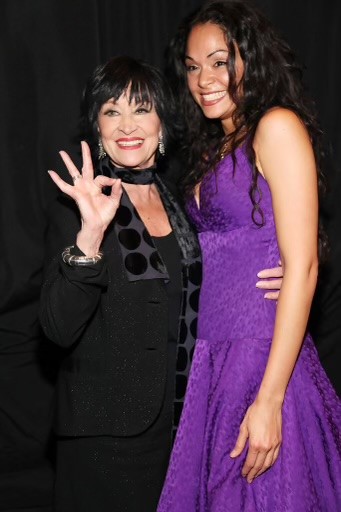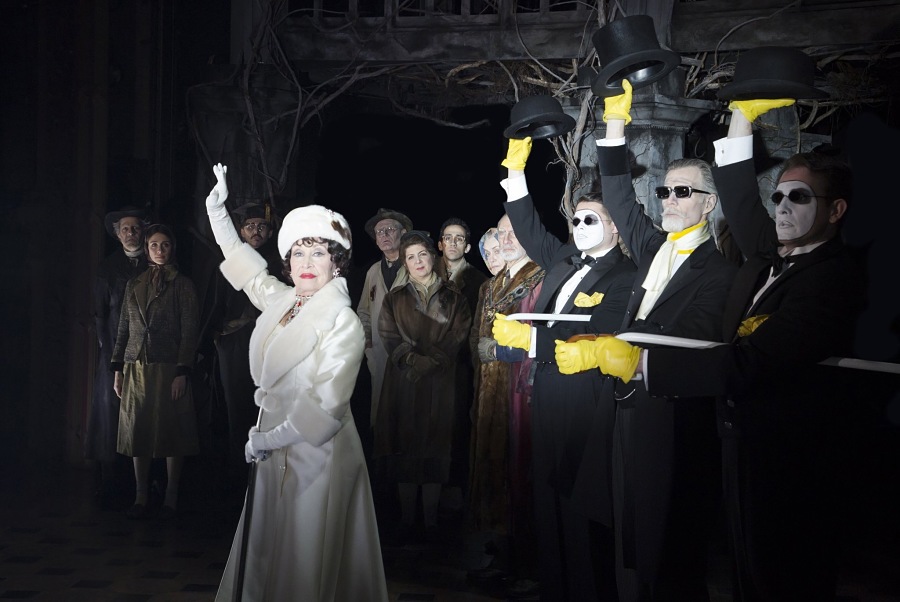Tony-winning dancer-actor-singer Chita Rivera died on Jan. 30. She was 91.
Chita was an example of many things: grace, power, unparalleled talent. With each step, she exuded consistency, dedication, and mastery. These are the obvious losses we will likely collectively mourn.
I was not fortunate enough to know her on a personal level. It is rare that we become friends with beings that live in our minds as icons. She was that for me: not only a symbolic ideal to chart my course by, but a force and a presence that could turn doubt into hope and fear into courage.
When I became the actor that Arthur Laurents chose to play Anita in his revival of West Side Story, I did so ignorantly. I knew of the deficiencies that I would have to overcome due to my lack of dance technique, and the weight of supporting a narrative that, to use Arthur’s words, demanded that I “step onstage only to knock it out of the park.” What I was not aware of was the insecurity of playing an iconic role, while forgetting that our icons hold us firmly on their shoulders. The misconception that I was creating (or recreating) a profound character while centering myself is a mistake that only now, as an older actor, I can see. We are never alone if we are acknowledging history.
As rehearsals for West Side Story birthed our out-of-town try-outs, then delivered us to the Palace Theatre for previews, my insecurities mounted. The fatigue and the unfathomable task of bringing Anita to the stage as a singer and mover set in, and nothing could assure me of my abilities. How did she do it? I thought. How was she equally as fierce as she was funny? How did she manage to build this theatrical gauntlet that she would then complete with what seemed like ease, and do it nightly? She couldn’t be human. And yet, as I watched the recordings of this being captivating any stage she inhabited, there was proof.

Arthur knew I was heading down a road that would leave me unable to stay present. And he acted: He secretly invited her and had stage management announce after our show that a guest awaited us onstage. We stood as a group, some guessing who it could be and some, like myself, absorbed in the hypercritical self-talk that ended every performance. Later on, Arthur told me he invited her to the preview because he knew that if she showed her approval of my work, I may actually believe it. Ah, his candor.
When she emerged from the wings, I thought I was dreaming. I was in disbelief that she was in front of me. The audible gasp from the company luckily masked my gasp of horror. She had watched our work. She was here. The Anita was standing just feet from me, and my knees began to knock. She approached and I wanted to disappear. She smiled and I frowned. I frowned so much that I remember her pulling at my face and saying, “Fix your face—it’s okay. I loved it.”
I think back to that moment, and I analyze those words: It’s okay. I loved it. It speaks of her grace. She likely saw my missteps, my flexed feet and my overwhelming doubt, and she quieted my fears. That moment, that short and easy sentence, righted my ship. That was the power of presence that she had. She could inspire and build confidence by just showing up.
I think of those who knew her and ache for their loss. And for those of us who saw her as a symbol—an entity that proved that guts and gall could supersede fear. I also contemplate a different loss: the loss of our elders. The age and wisdom that was real and true and undeniable. The type of theatre royalty that could make you believe you could achieve, because they encouraged you and showed you grace.
We were lucky while we had her.
KO (Karen Olivo) is a multi-hyphenate previously living/working on the unceded ancestral lands of the Ho-Chunk Nation in Madison, Wisc. They are most widely known for their acting work that spans the last 25 years on Broadway and TV. In spring 2020, KO transitioned into teaching to refocus their energy on the future of the art form.


